When Marvel Studios debuted their first feature, Iron Man, in 2008, it was considered a major risk. While superhero films had broken through in the 2000s thanks to Marvel creations like the X-Men and Spider-Man, those films were created by major studios where the final decisions weren’t made by Marvel. On top of that, other characters licensed out by the publisher were critical and/or commercial flops. On top of that, by producing the films in-house, they assumed the costs of any failures.
Fortunately, Iron Man was a major hit. On top of that, it paved the way to the Marvel Cinematic Universe, where each film from the studio ties into a larger universe. That initial slate of films, now known as Phase 1, led to The Avengers – to date, the biggest superhero film of all time. Phase 2 saw a series of sequels that increased the scale of their predecessors, leading to the giant-sized Avengers: Age of Ultron. The series also went deeper into space with Guardians of the Galaxy, and into a smaller scale than ever with Ant-Man.
With the number of records that the MCU has set at the box office, along with the critical raves that have accompanied each film over the past few years, it’s easy to forget that not every film in this franchise has worked quite so well. With Marvel officially welcoming the return of Spider-Man into the fold with the appropriately-named Spider-Man: Homecoming, we’re looking at the 16 films released to date in the Marvel Cinematic Universe, figuring out what works – and what doesn’t.
16. The Incredible Hulk
It’s easy to forget that The Incredible Hulk is part of the Marvel Cinematic Universe. It’s the only film in the series that was released by a studio other than Paramount or Marvel (in this case, Universal). The film’s star, Edward Norton, was replaced by Mark Ruffalo when it came time to start shooting The Avengers. Really, the only thing that ties this into the MCU is the tag scene at the end, and that’s because of the presence of Robert Downey Jr. Otherwise, nothing from this film has come up again, and chances are strong if they ever do make another Hulk film with Ruffalo, it will move far away from what’s going on here. There’s nothing particularly memorable going on here, and while it isn’t exactly bad, it’s definitely not good.
15. Thor: The Dark World
With the fact that the most prominent and well-developed villain to date in the MCU comes from the Thor part of the franchise, it’s understandable why Loki makes a return appearance in Thor: The Dark World. Unfortunately, he’s not the primary villain in the film, but his presence completely overshadows Malekith, who ends up becoming the least developed villain in the entire franchise (and with Marvel’s overall underwhelming history when it comes to villain development, that’s saying something). There’s a lot of Thor: The Dark World that feels like a retread of what audiences have seen in Thor and The Avengers, and nothing special to make it stand out among the Phase 2 films, let alone the franchise as a whole.
14. Iron Man 2
Given Iron Man‘s surprise success, as well as The Incredible Hulk‘s relative disappointment, it made sense for Marvel to return to the character before launching any of its other Phase 1 films. Unfortunately, Marvel didn’t really seem to have a good idea of what would make for a good sequel. There are plenty of individual scenes in the film that are great, but it works better as a trailer than a full-length film. Add in the business with Nick Fury and Black Widow that’s obviously meant to bring S.H.I.E.L.D. into the franchise, and you get a film with a lot of bloat. Not even Robert Downey Jr.’s charms can save this one.
13. Thor
It’s odd to think about how different a superhero film Thor is, when compared to pretty much any other superhero film that preceded it. Thor is a magical space god, and Thor had to bring the character into the Marvel Cinematic Universe in a way that could let audiences accept that he exists in the same world as Iron Man and Hulk. While it isn’t perfect – some of the Earth-bound elements, in particular, don’t hold up – Marvel did a more than competent job introducing Thor, Loki and Asgard into this universe.
12. Ant-Man
After a series of films that increased the scope of the Marvel Cinematic Universe, it seems entirely appropriate for Phase 2 of the series to come to a close on a small scale. And if Marvel wanted to go small, there are few superheroes more appropriate than Ant-Man. Ant-Man may have suffered some of the most notable production problems of any Marvel film, but the final product subtly tweaks the superhero formula that’s become standard for this series and other franchises. Plus, Paul Rudd gives Scott Lang the wiseass nature of Tony Stark without the accompanying smarm.
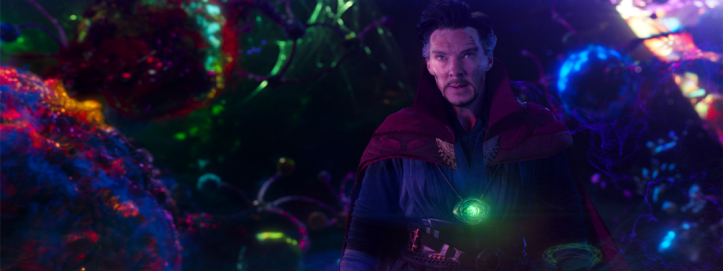
11. Doctor Strange
While magic has found its way into the MCU before, to a certain degree, Doctor Strange marks Marvel’s first full-on dive into the mystical. Visually, it’s far and away the most visually stimulating movie in Marvel’s canon. It owes a good amount of its visual trippiness to Inception, but Doctor Strange takes that trippiness and runs with it. Fourteen films into their run, though, Marvel seems incapable of creating a wildly different origin story. On the one hand, they deserve credit for making the film accessible to broader audiences. On the other, Doctor Strange hits a lot of the same notes as Iron Man, just with some magic thrown in.
10. The Avengers
Blasphemy, you say, ranking The Avengers this low? Hear me out. While there are plenty of great character-building scenes in this film, and some iconic moments (including a few involving Hulk), the film has to deal with a painfully dull opener, plus roughly an hour of actually bringing these characters together. In the long haul, it’s an important film, but whenever I rewatch the film (and I have several times), I have to remind myself that there’s good material coming frequently in the first hour.
9. Avengers: Age of Ultron
The largest film in the MCU to date is undoubtedly overstuffed, but writer/director Joss Whedon manages to take many of the elements he used on The Avengers and build on them. The action sequences are tighter and more coherent, the character moments are interesting and used to create unexpected relationships, and each character gets a moment to shine. Plus, with the film already featuring the team together, we don’t have to sit through an hour of getting the gang together. Thankfully.
8. Iron Man 3
For the first film after the mammoth success of The Avengers, rather than expand upon the newly opened-up universe, the MCU’s biggest name basically draws into isolation. And that’s while proving he can – and will – be a dick to children. While this may be a superhero film, technically, Iron Man 3 also seems like the franchise’s attempt at a character piece. It doesn’t always work – there are plenty of plotholes that need filling – it’s got sparkling, biting humor and personality. It’s not a bad way to kick off Phase 2.
7. Captain America: The First Avenger
Getting Captain America right may be the biggest hurdle Marvel jumped in Phase 1. They somehow managed to make a character with a history of jingoistic patriotism fit into the MCU, and they did it by not only acknowledging the character’s roots in World War II, but embracing them. In the MCU, Steve Rogers isn’t a stereotypical “America, fuck yeah!” figure. He’s something we don’t really see in superhero films at all, for that matter. He’s a genuinely decent guy who wants to help the world however he can. Seeing how his roots in a different time mold him gives him a compelling origin story, and the film’s closing line may be one of the most bittersweet in the superhero canon.

6. Guardians of the Galaxy Vol. 2
The success of the first film in this series can be seen on the impact it’s had with other Marvel properties, from the otherworldly Doctor Strange to the redesigned realm of Thor: Ragnarok. Guardians of the Galaxy Vol. 2 also bumps up the insanity of this franchise, but it does so while also deepening the relationships between characters. There was a notable amount of heart to the first film in this series, and Vol. 2 builds on that to create one of the strongest looks at the dynamics of a family that I’ve seen from a major blockbuster film.
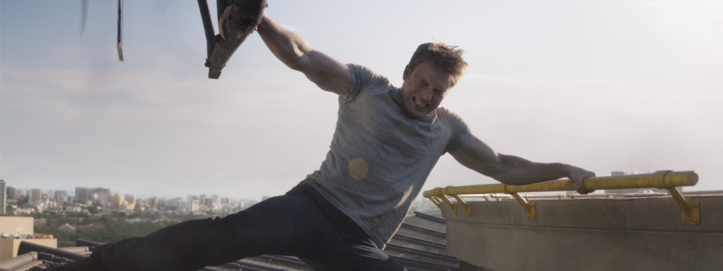
5. Captain America: Civil War
If Captain America: The Winter Soldier served as both a sequel to The First Avenger and The Avengers, Captain America: Civil War has the more daunting task of following up both The Winter Soldier and Age of Ultron, and showing how the MCU’s Phase 3 will differ from Phases 1 and 2. There have been plenty of jokes about Civil War essentially being Avengers 2.5, since this film brings in the vast majority of Age of Ultron‘s cast, then adds in a few new players. Somehow, though, Civil War manages to give many of the Avengers enough room to not feel shoved in, all while clearly working as a Captain America movie. If The Winter Soldier tackled Captain America questioning his place in the modern world, Civil War makes clear where his boundaries lie. Civil War also – wisely – deviates from some of the standard Marvel tropes, particularly with the largest battles and the effectiveness of the film’s villain. The result is a film that radically shakes up the majority of the MCU going forward, far more than The Winter Soldier or either Avengers film managed, while raising plenty of questions about where these characters will go from here – and how they might reunite at the end of Phase 3 for Avengers: Infinity War.

4. Spider-Man: Homecoming
With Spider-Man: Homecoming, Marvel’s biggest character officially comes home (excluding the character’s appearance in Civil War, of course). With this being the sixth Spider-Man film in 15 years, though, there’s plenty riding on Marvel making this incarnation stand out. Thankfully, bringing Spider-Man into the MCU was the best thing they could have done for the character. Unlike previous iterations of the character, this one feels appropriately aged for high school. He’s goofy and awkward and, most importantly, a kid. This is a Spider-Man that doesn’t need to show us the origin story of how he got his powers and became Spider-Man – it’s a story of how Spider-Man actually grows to become worthy of the name, a key difference. This Spider-Man is a breath of fresh air for the MCU, and we can only hope he’ll stick around.
3. Iron Man
It’s the film that started it all, and in retrospect, it’s hard to believe how much of a gamble this was when it was released in 2008. Iron Man wasn’t a top-tier superhero, and Robert Downey Jr. was considered a major risk. And yet, somehow, Iron Man became a huge hit. The film itself plays a big part in that: it’s a genuinely good film that, up until its universe-setting tag scene, tells a great standalone origin story. Plus, let’s face it: with some minor exceptions, Marvel’s done a great job casting its superheroes, but they have yet to top Downey as Iron Man. The two are perfectly matched, never more so than they are here.
2. Guardians of the Galaxy
What is, to date, the most out of left field entry in the MCU is also one of the franchise’s best. In some ways, it’s a look at how Marvel might have approached the Avengers (on a simultaneously smaller and larger scale) if they didn’t have several features beforehand to introduce characters. But Guardians of the Galaxy is more than that. It’s a funny, subversive, emotional film that managed to hit all the right spots with audiences. It’s also cemented the concept that Marvel can do just about whatever they want at this point.
1. Captain America: The Winter Soldier
Captain America: The Winter Soldier may occupy one of the stranger positions in the MCU canon. It’s a direct sequel to Captain America: The First Avenger, while following up more naturally to The Avengers than the two films that came before it (Iron Man 3 and Thor: The Dark World). It managed to set the stage for Avengers: Age of Ultron, not to mention alter the MCU’s expansion into television, Agents of S.H.I.E.L.D. And it not only manages to serve a variety of narrative functions, but it’s easily one of the strongest films Marvel’s done to date. The film weaves in new characters naturally while fleshing out backstories for not only Captain America, but also Black Widow. If The First Avenger showed how important Captain America was to the MCU, The Winter Soldier showed why Captain America is important to the world as it exists today.




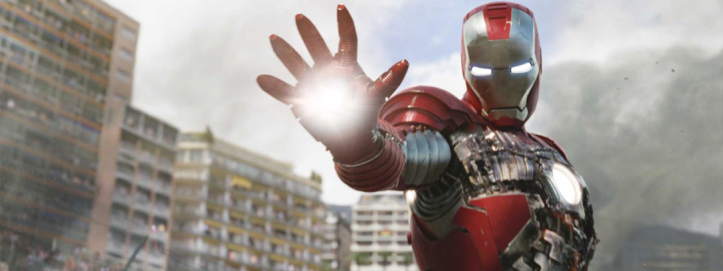






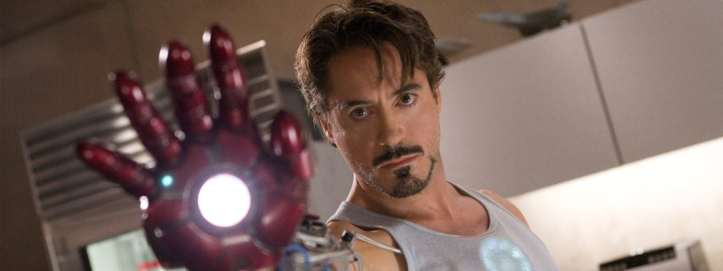

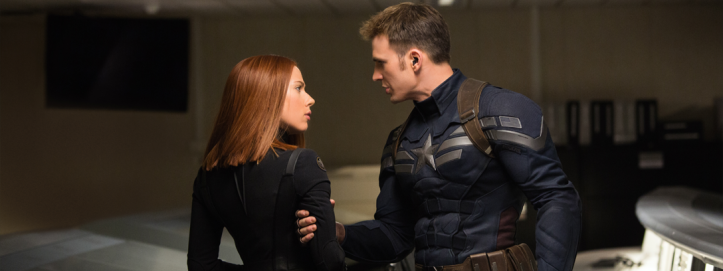
[…] Out Ranked: The Marvel Cinematic Universe […]
LikeLike